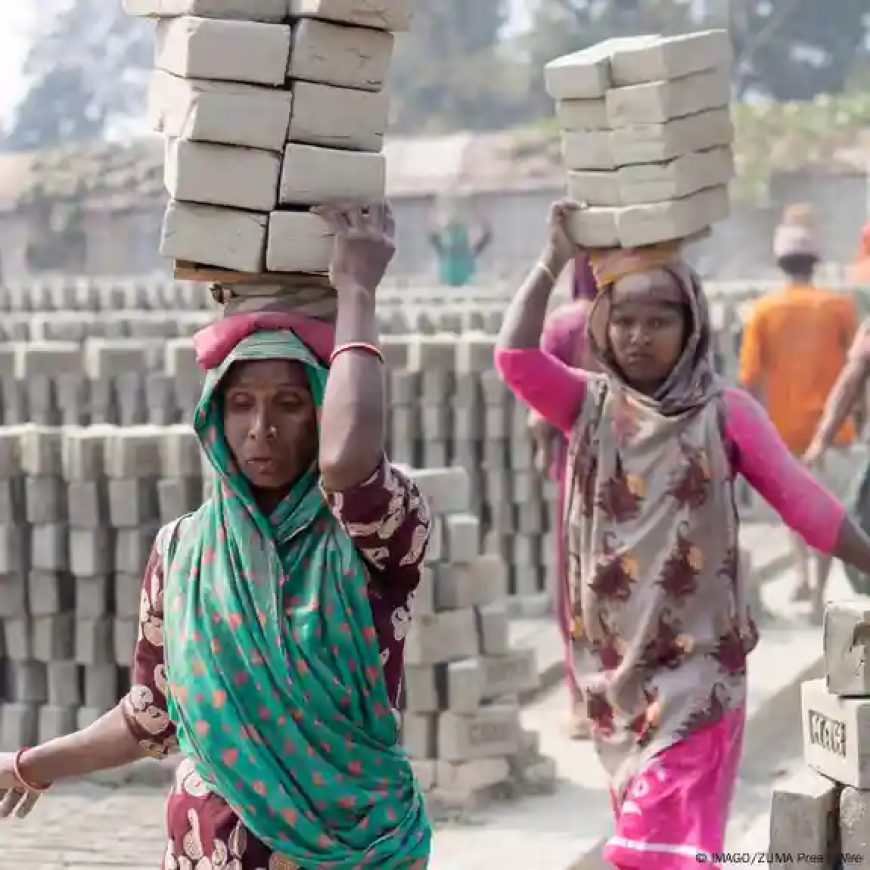Women's rights under attack amid democratic erosion: UN
As democratic institutions worldwide have weakened, so have women's rights, according to a report from UN Women. The head of the UN said instead of mainstreaming equal rights, the world was mainstreaming misogyny.

Women's rights have regressed in one-fourth of the world's countries in the last year in the face of issues ranging from weakened democratic institutions, growing conflicts, humanitarian crises and climate change, a UN Women report said on Thursday.
The report came ahead of International Women's Day on March 8, and marks 30 years of work after the 1995 Beijing Platform for Action, a global conference on women's rights where 189 countries endorsed an agreement outlining the steps needed to achieve gender equality.
"The weakening of democratic institutions has gone hand-in-hand with backlash on gender equality," the UN Women report said. "Anti-rights actors are actively undermining long-standing consensus on key issues," it said, adding that anti-rights actors blocked or slowed policy implementation in countries where they could not roll back laws.
"Globally, women's human rights are under attack. Instead of mainstreaming equal rights, we're seeing the mainstreaming of misogyny," UN Secretary Antonio Guterres said in a statement.
UN Women report finds mixed progress
Looking back at the last 30 years, the report found that while there has been progress, it is not nearly enough.
Although the rate of female representation in parliaments worldwide has nearly doubled, men still make up three-quarters of lawmakers.
The number of women with social protection, such as health care and protection from violence, increased by a third between 2010 and 2030, but still remains out of reach for 2 billion women and girls.
In terms of legal rights, 88% of countries have passed laws and built services to end violence against women. Most have banned discrimination against women and several are improving their quality of education and life. Yet, women still have only 64% of the legal rights of men, the report said.
Since 2022, cases of conflict-related sexual violence have risen by 50% with women and girls suffering 95% of these cases.
Domestic violence continues to be an alarming issue, the report found.
"Globally, violence against women and girls persists at alarming rates. Across their lifetime, around one in three women are subjected to physical or sexual violence by an intimate partner or sexual violence by a non-partner," it said.
Meanwhile, gender gaps at work remain stagnant and women do 2.5 times more unpaid care work than men.
What should be done to improve women's rights?
The report outlined an agenda meant to improve women's rights. A six-point action plan touched on tasks including a digital revolution for women and girls, freedom from poverty, a zero violence policy and complete and equal decision-making power.
It also called for climate justice for women.
"We must prioritize women's and girls' rights in climate adaptation, center their leadership and knowledge, and ensure they benefit from new green jobs," a statement accompanying the report said.
With a new roadmap based on the report's finding, UN Women Executive Director Sima Bahous said the agency hopes the world will be closer to the UN's goal of achieving gender equality by 2030.
(Source:DW)







































